How to work with media files
All recordings and photos from devices are available for viewing in your user account — either in the History section or in the Media tab of the selected object.
In the History section, you can not only view the object’s tracks but also work with video: watch recordings, download clips, or check recorded violations.
1. Go to the History section in the top panel
2. Select the desired object from the list by checking the box next to it
3. Specify the desired time period
4. Click the Search button
5. In the search results, check the track recordings you want to view
6. The Media tab will appear in the bottom panel (next to Events)
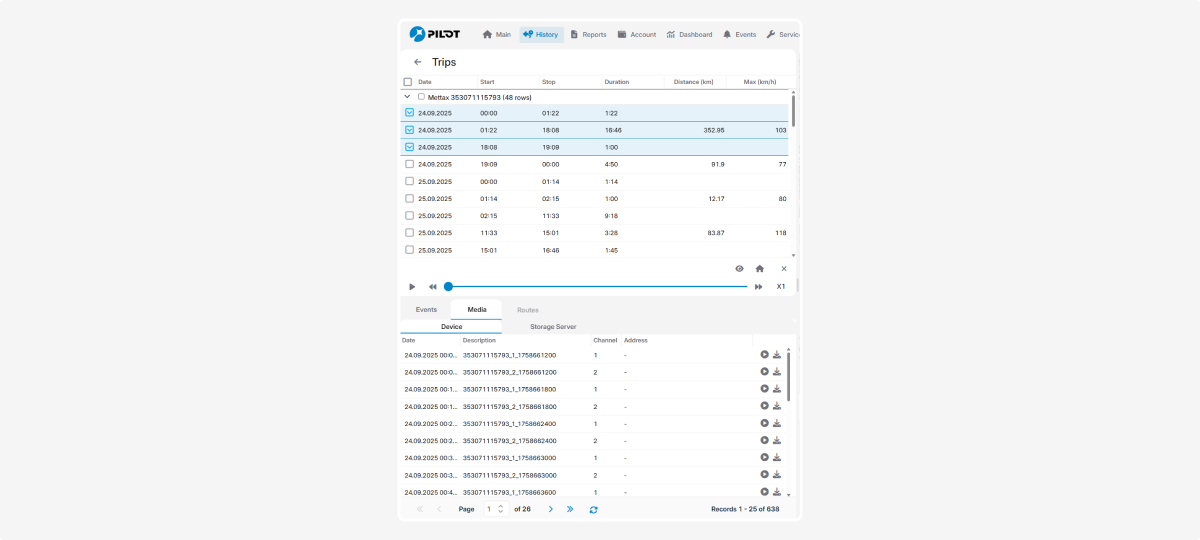
-
Device — recordings stored on the device itself (dashcam or camera)
-
Storage Server — recordings stored on the server (e.g., DMS/ADAS events: seatbelt unfastened, fatigue, smoking, etc.)
Device tab
This section shows everything still stored on the device.
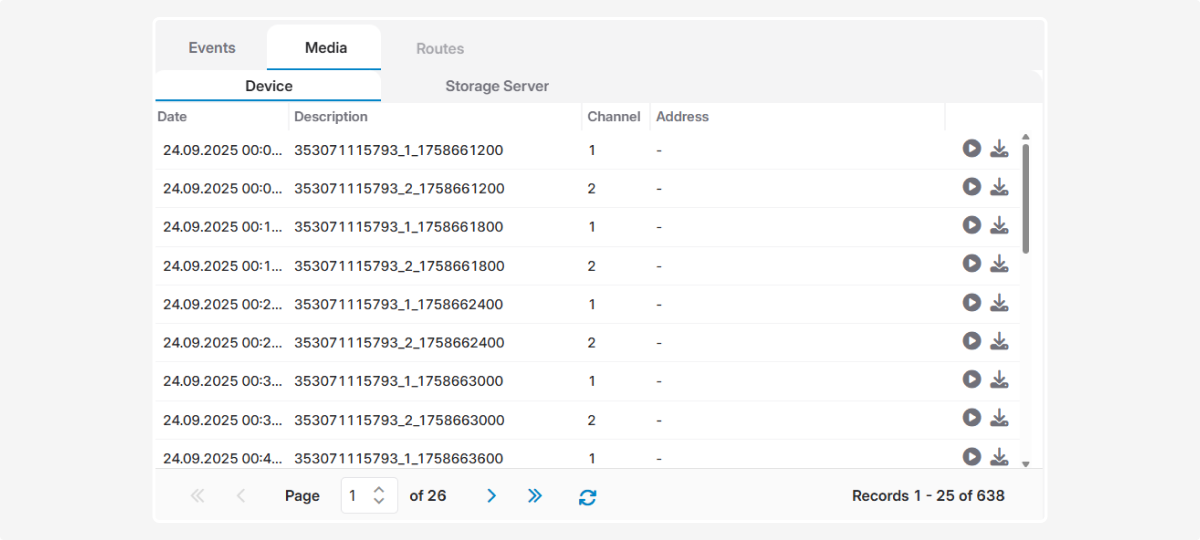
How to view a recording:
1. Click the icon  next to the recording in the list
next to the recording in the list
2. The player will open and display video for the selected time period
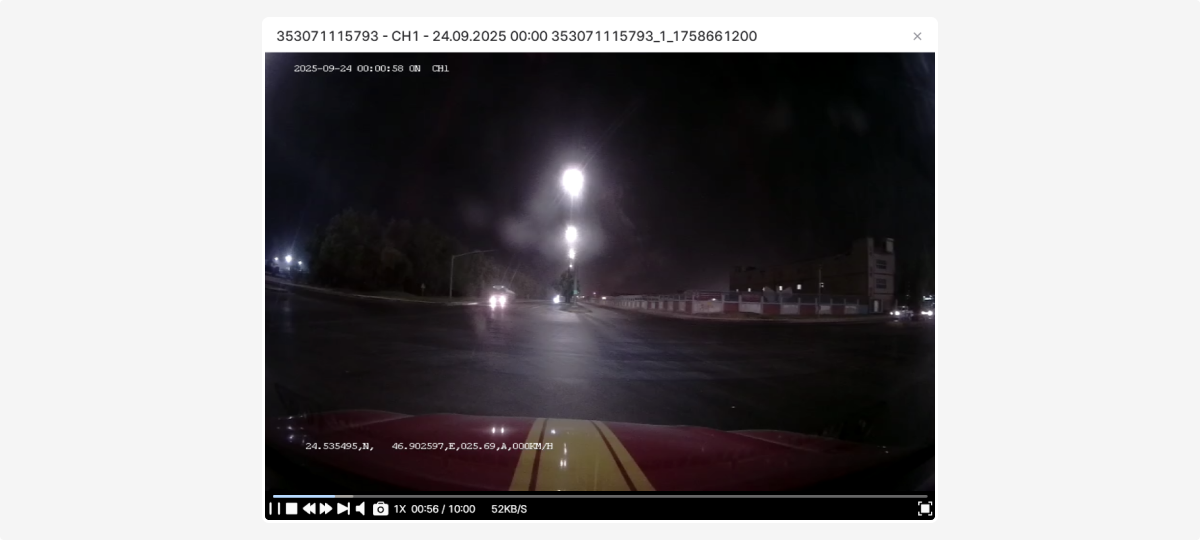
On the video you will see:
-
Channel number
-
Date and time
-
Vehicle speed and/or coordinates
Video player controls:
How to download video:
1. Click the download button
next to the recording
2. A download window will open
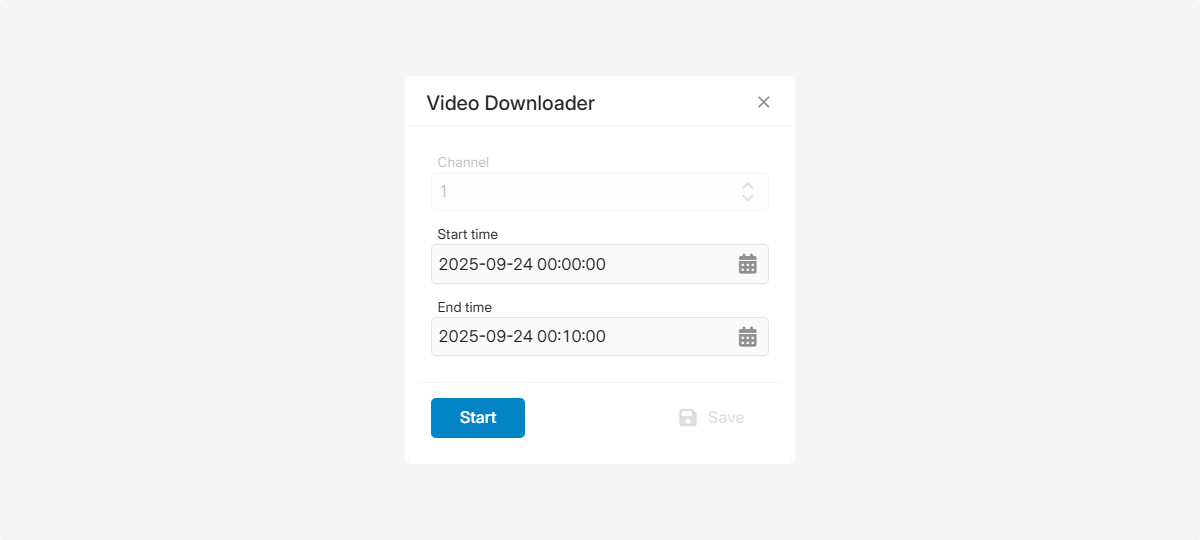
3. You can download the full video or only a selected segment:
-
To select a segment, specify the start and end time in the calendar

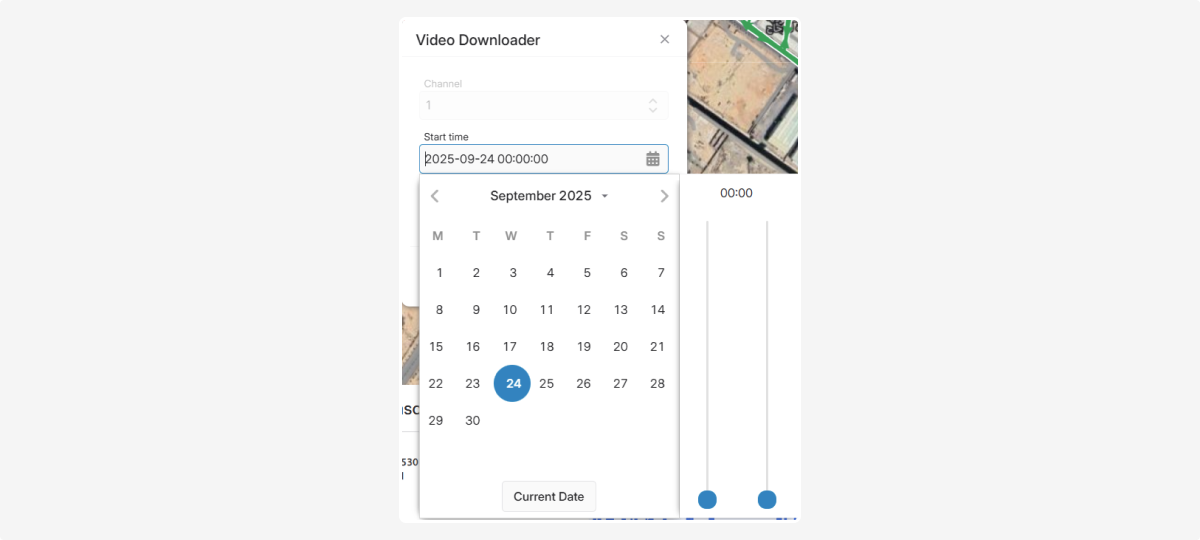
4. Click Start
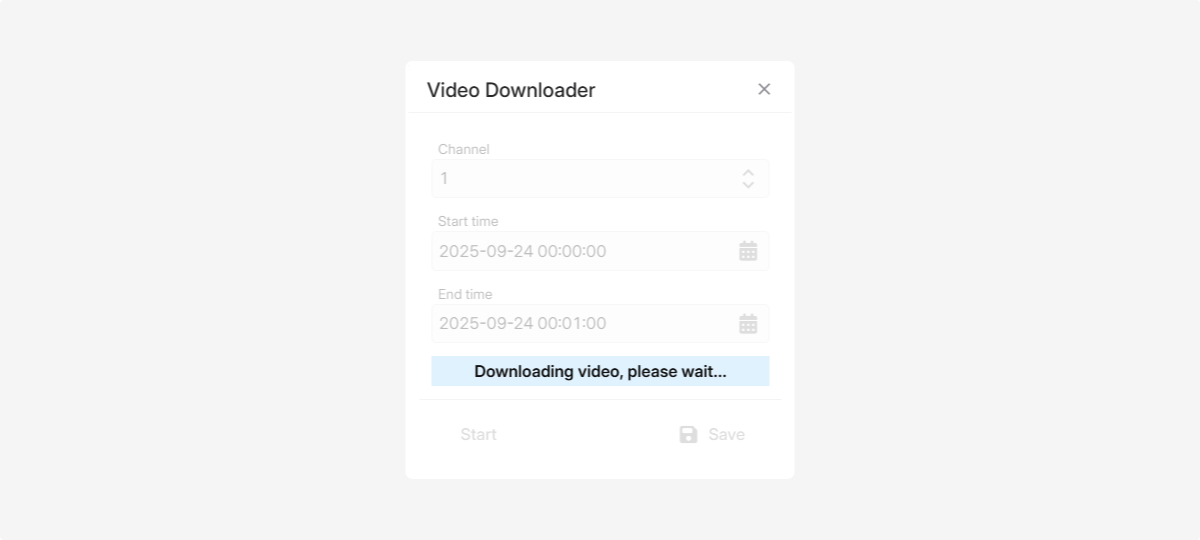
5. Wait for the system to prepare the file (the device must be turned on and the recording must still be on the memory card)
6. Once prepared, you can save the file to your computer
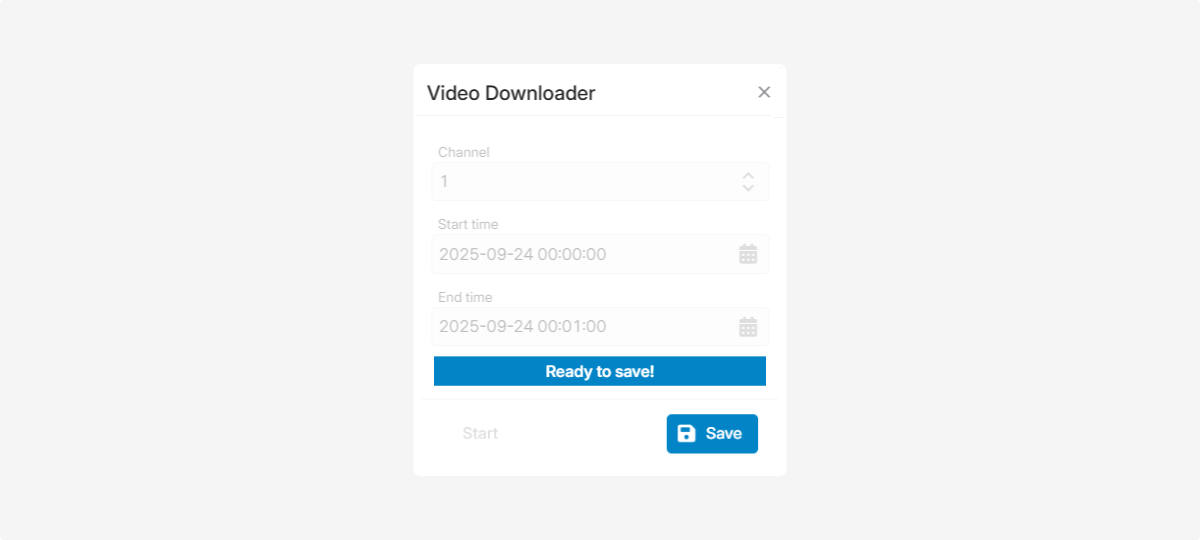
If the video has already been overwritten on the device, it cannot be downloaded.
|
Storage Server tab
This tab contains recordings stored on the server. The server stores safety-related events (DMS and ADAS), for example:
-
Driver not wearing a seatbelt
-
Smoking while driving
-
Lane departure
-
Signs of fatigue
Each event has a description, e.g., “Seatbelt unfastened,” “Fatigue while driving.”
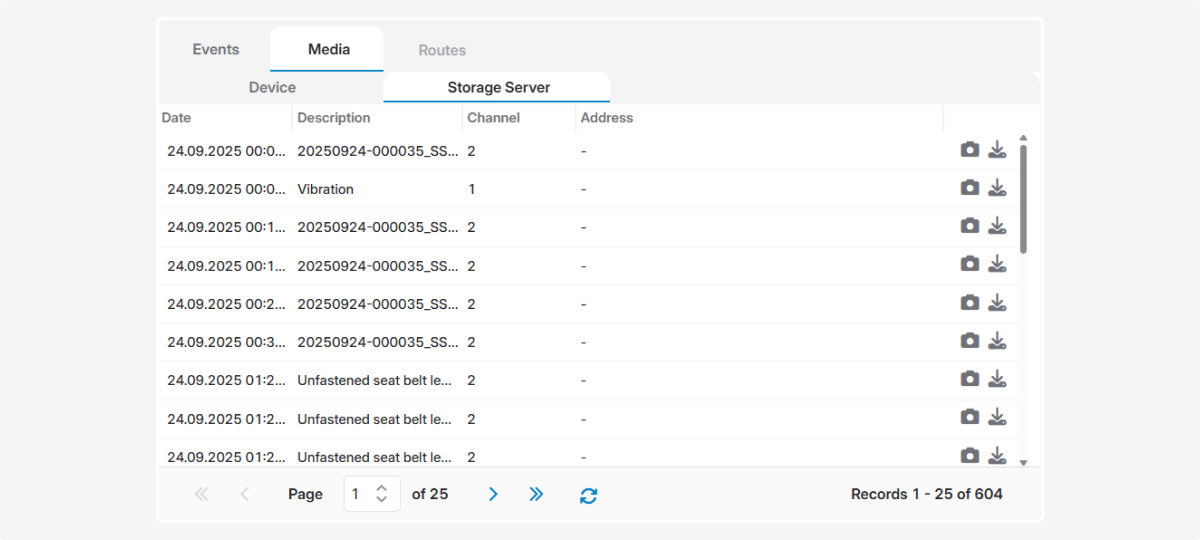
How to work with media on the server:
-
To view a photo of an event, click the icon
 .
.
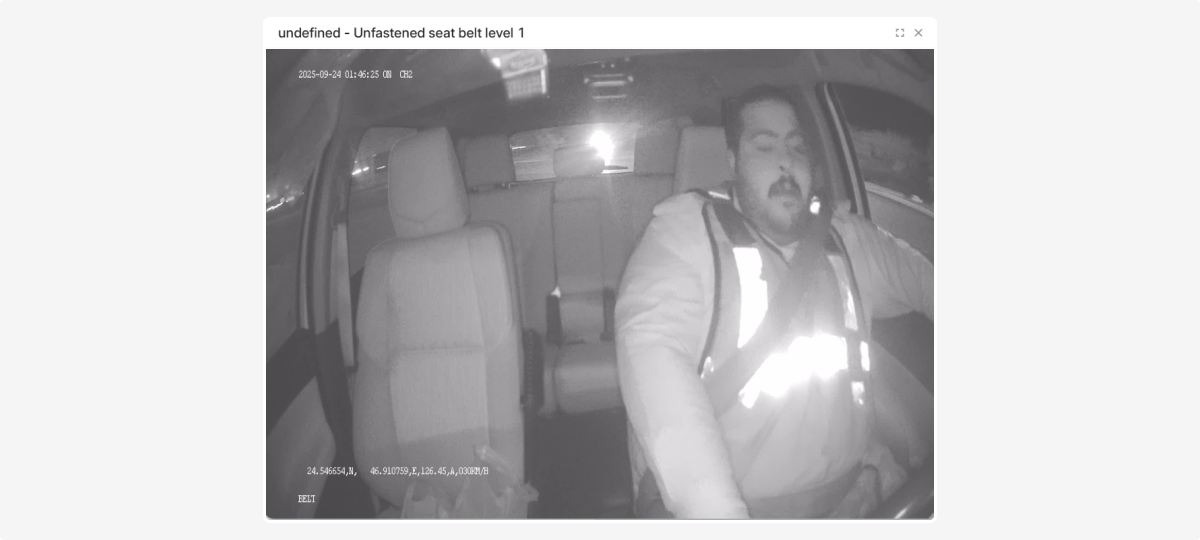
-
For some events, video is also available — click the play icon
 .
.
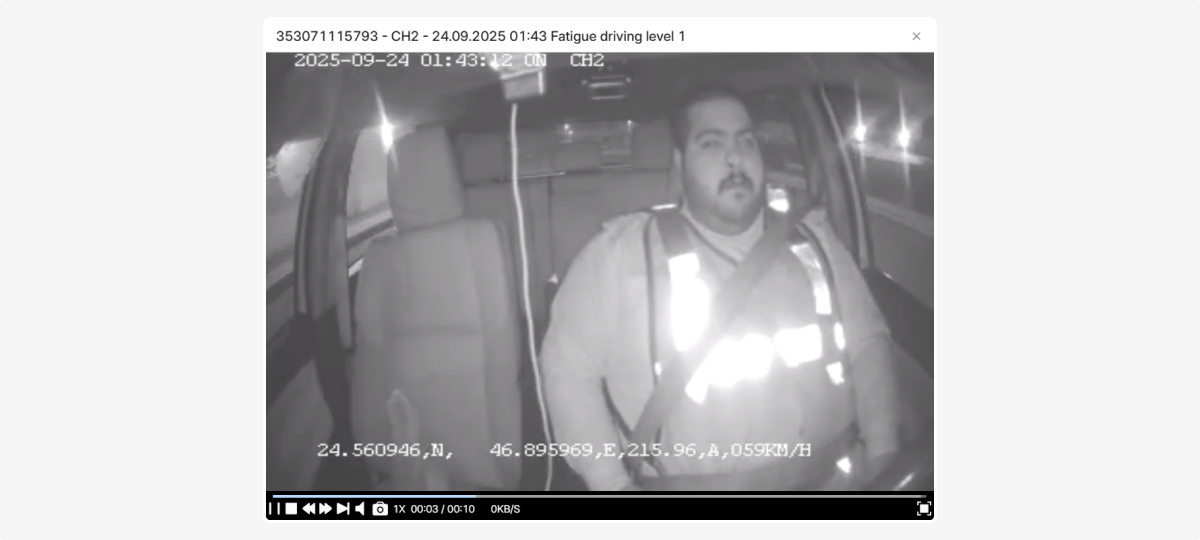
-
To save a media file (photo or video) to your computer, use the download button
 .
.
Where violations in the Storage Server come from
All violations you see in the Storage Server tab are recorded by the device itself.
When you create an object and apply a global settings template (e.g., for CMS devices), the object gets a multi-position Alarm sensor.
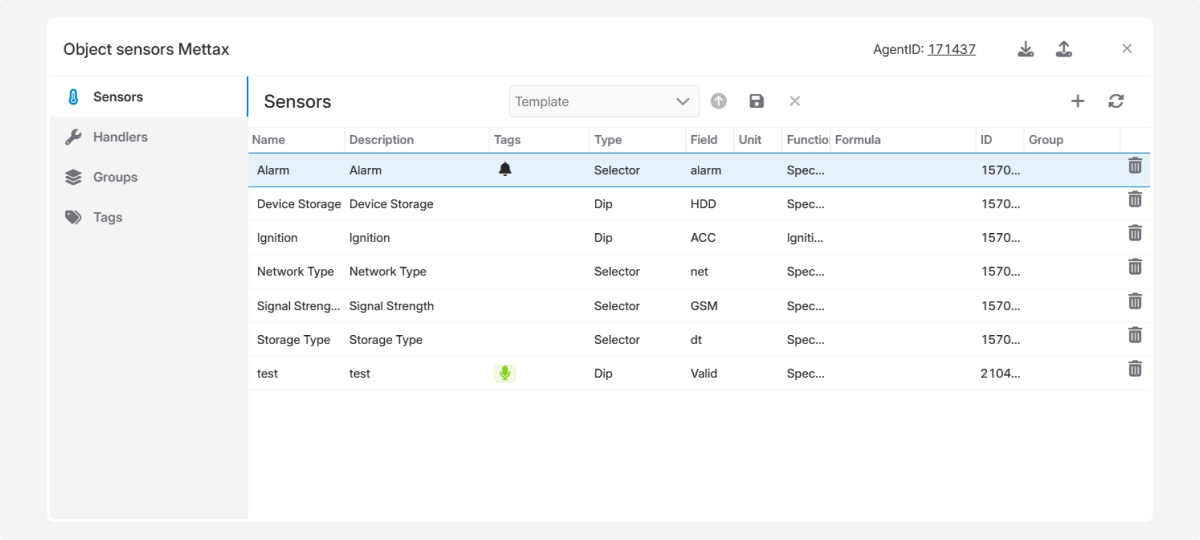
The device sends violation codes, which PILOT automatically maps to the sensor’s calibration table.
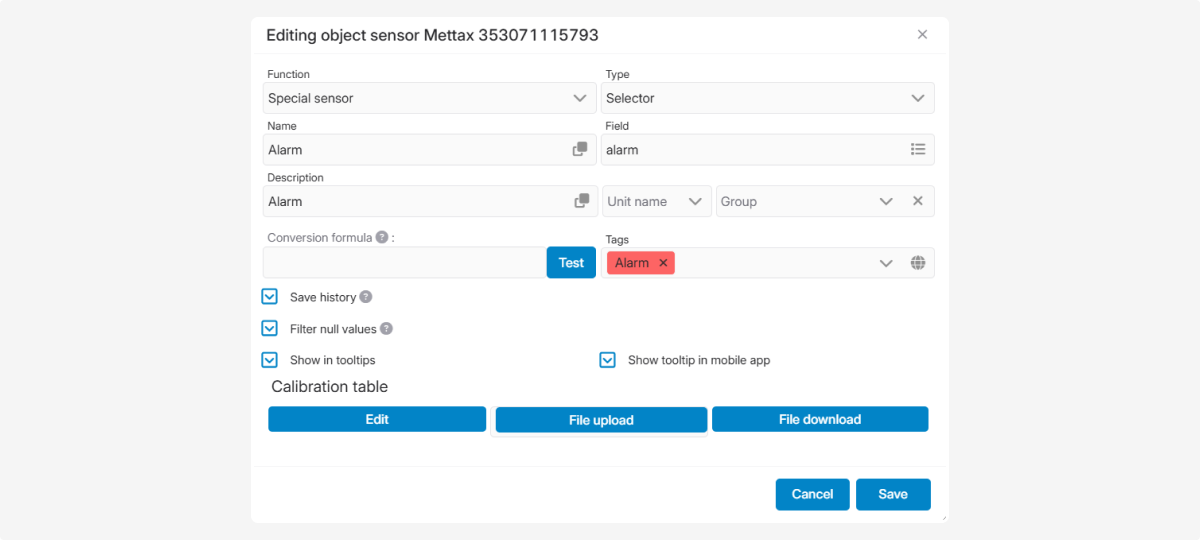
The table translates technical codes into understandable statuses, such as:
-
Using a phone
-
Unsafe distance
-
Smoking while driving
-
Fatigue
-
Lane departure
-
Other violations

When a driver commits one of these violations, the device sends a code along with a photo or video to the system. The basic set of violation codes is already built into the calibration table, so most events are recorded immediately without additional setup.
The object menu has a separate Media tab.
How to open it:
1. Find the desired object in the list
2. Right-click on it
3. Select Media from the menu
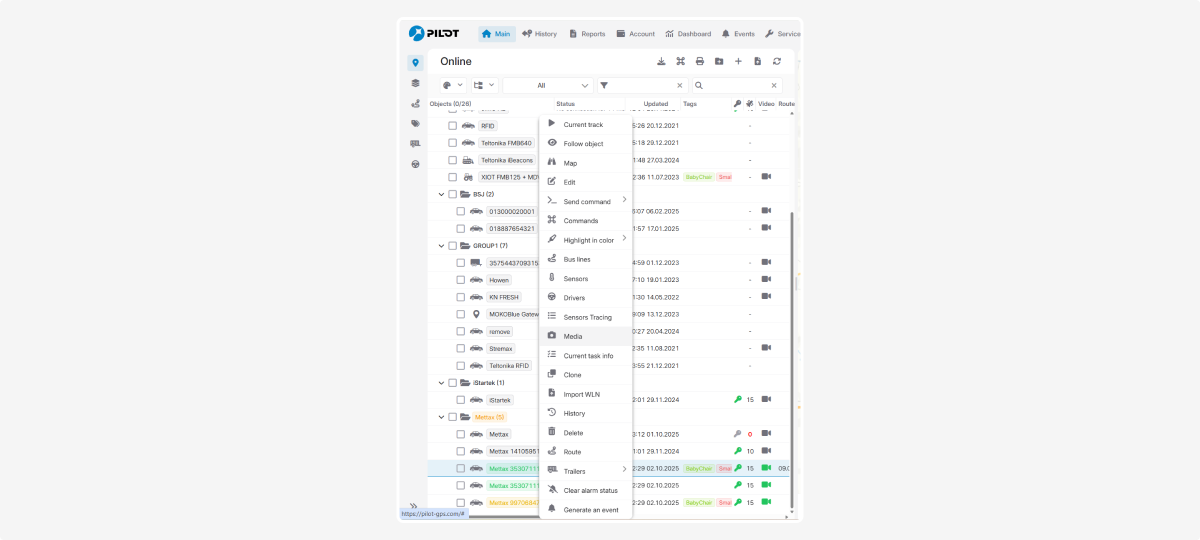
The Media tab is divided into two parts:
-
Device — recordings stored on the device itself (dashcam or camera)
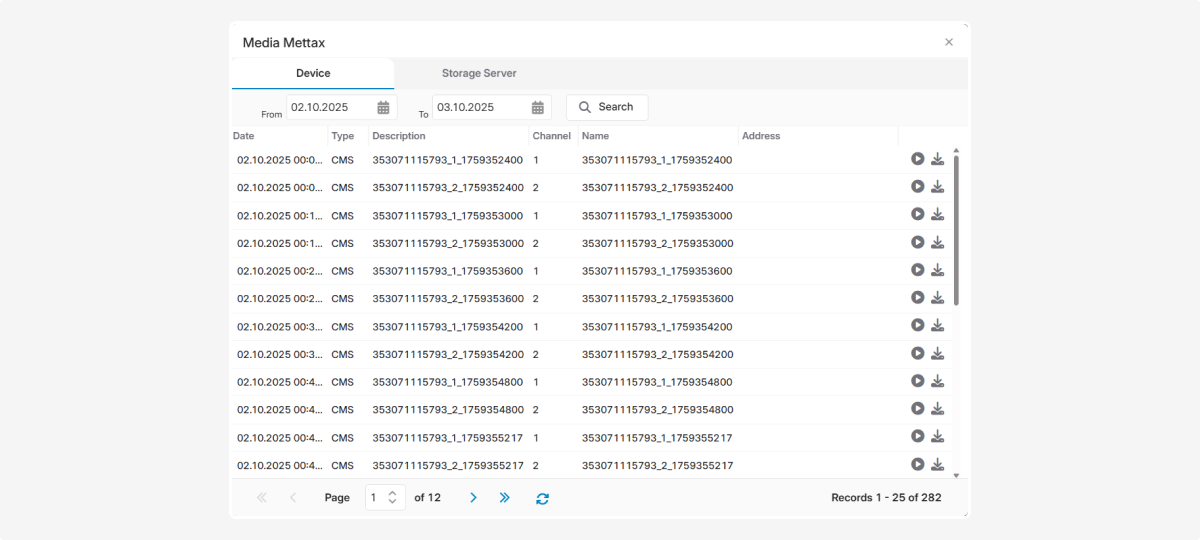
-
Storage Server — recordings stored on the server (e.g., violation recordings)
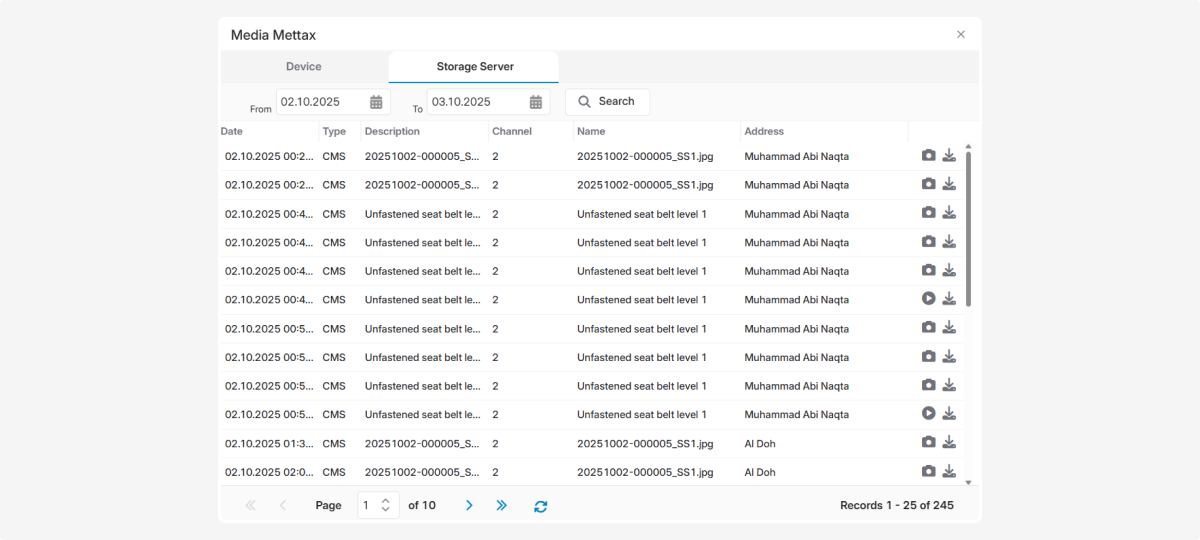
For more details on what is contained in each section and how to work with video, see the descriptions above.